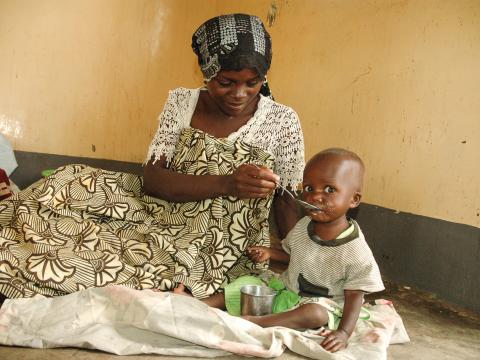Guide to Maternal, Newborn and Child Health and Nutrition in Emergencies
Download
In 2007, World Vision (WV) initiated a process of prioritising low-cost, evidence-based, measurable and preventive interventions in order to combat the primary causes of maternal and child mortality. The health and nutrition (H/N) ‘Do, Assure, Don’t Do’ (DADD) guidelines helped to orientate effort and resources towards a strategic focus. This focus is primarily influenced by The Lancet study on child survival and is further shaped by existing human rights approaches, the right to survival, and the right to health treatment and care. WV’s development and phased implementation of the 7-11 approach (2010) is part of the process to strengthen expertise and competencies in key MNCH and nutrition interventions that fit with our organisational strategy and mandate. Strategic training on 7-11 interventions, building partnerships and recruiting experienced field health staff are part of WV’s investment towards more consistent maternal, newborn and child health (MNCH) and nutrition interventions.
In emergencies, our commitment continues as we strive to save the lives of young children and mothers by focusing emergency response resources where they are critically needed. The 7-11 approaches are implemented where feasible, and in a phased manner. Some services that need to be met in an emergency cannot be provided by WV, as they are outside our remit, expertise and mandate. In such situations, it is our role to advocate for other agencies to complement the WV response and fill the gap.



